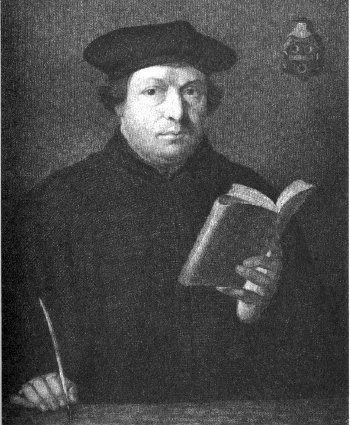
Martin Luther
| Protestantism |
"With its insistence on the inwardness of all true grace," Barfield observes in History in English Words, the Protestant Reformation seems "to have been but another manifestation of that steady shifting inwards of the centre of gravity of human consciousness which we have already observed in the scientific outlook. That shift is, in a larger sense, the story told by the whole history of the Aryan languages" (153).
The development was in fact long in coming. Since the end of the Roman Empire, after all, the Catholic Church had come "to see her children not as eternal spirits but as timeous souls. Therefore she had to abolish the Spirit altogether, except as a name and an abstraction--and therefore she gradually scribbled over the sublime image of God the Father all those insipidities of God the Paterfamilias." Protestantism, however, did not really break with this trend.
The Protestants did indeed dethrone the visible phantom of the Roman Caesar--the earthly one in the Vatican--but they only domesticated the heavenly Paterfamilias more than ever. God the Paterfamilias was turned by them into God the papa; and as to the soul--as to the poor human soul--the ghost of the Roman citizen has lived on to become the ghost in the machine. (UV 102-103)
| See in particular Saving the Appearances, Chap XXIII |